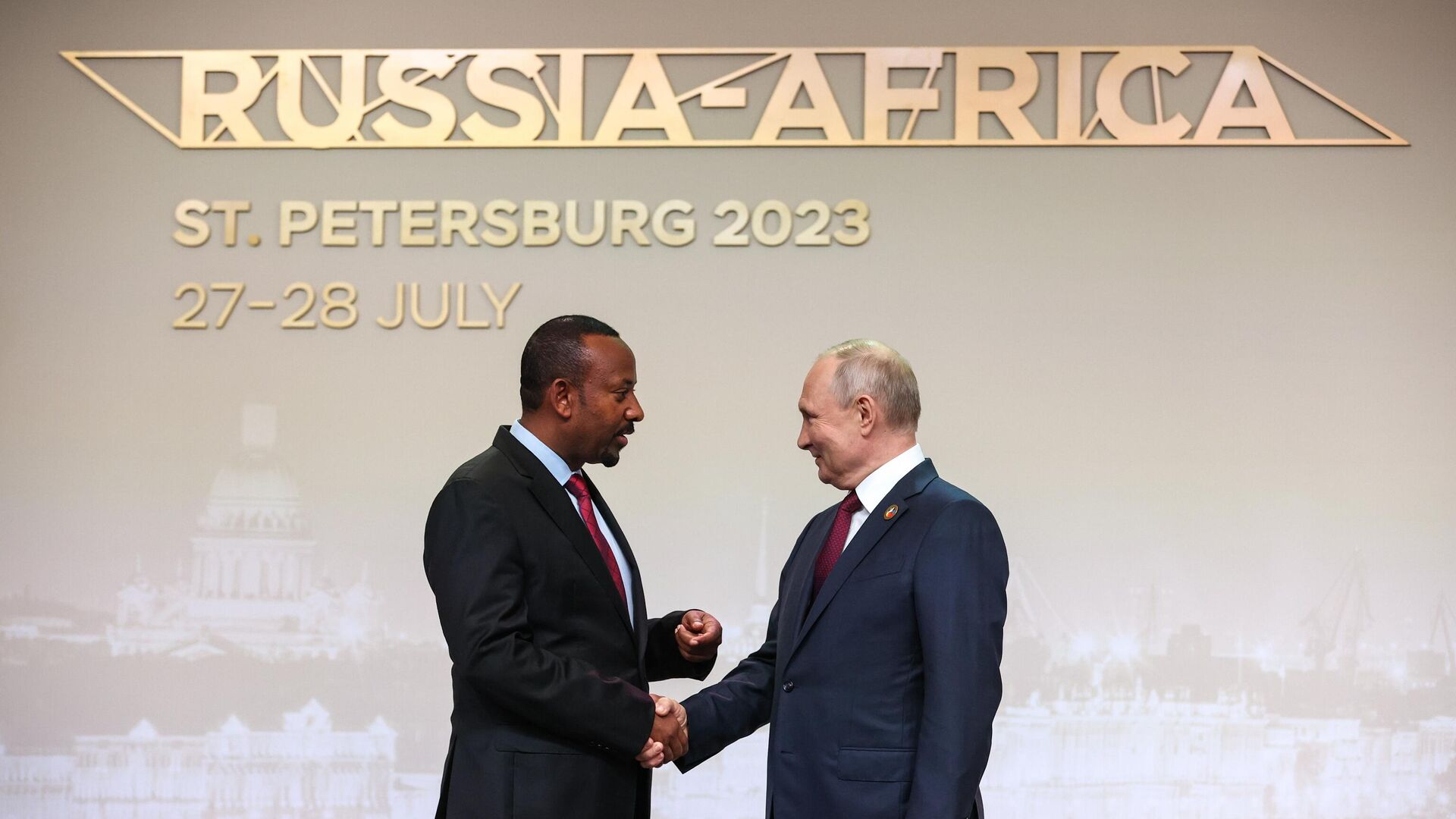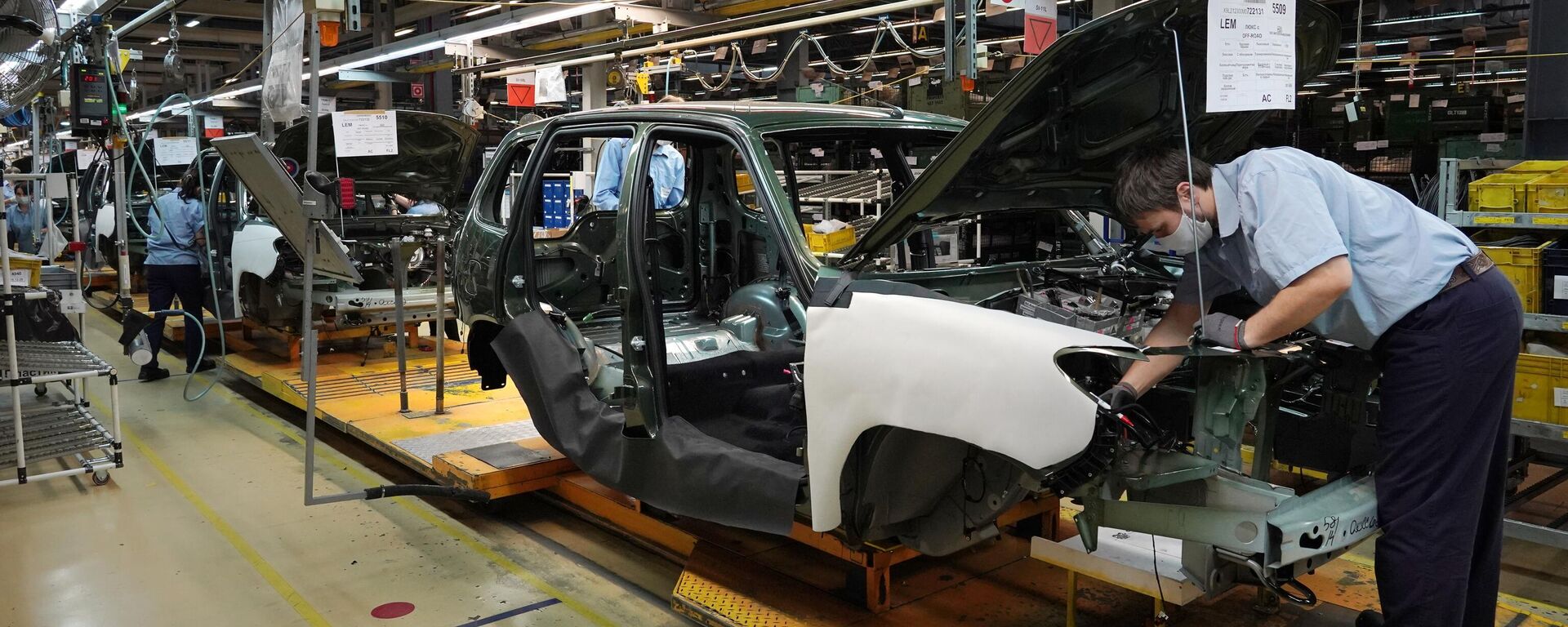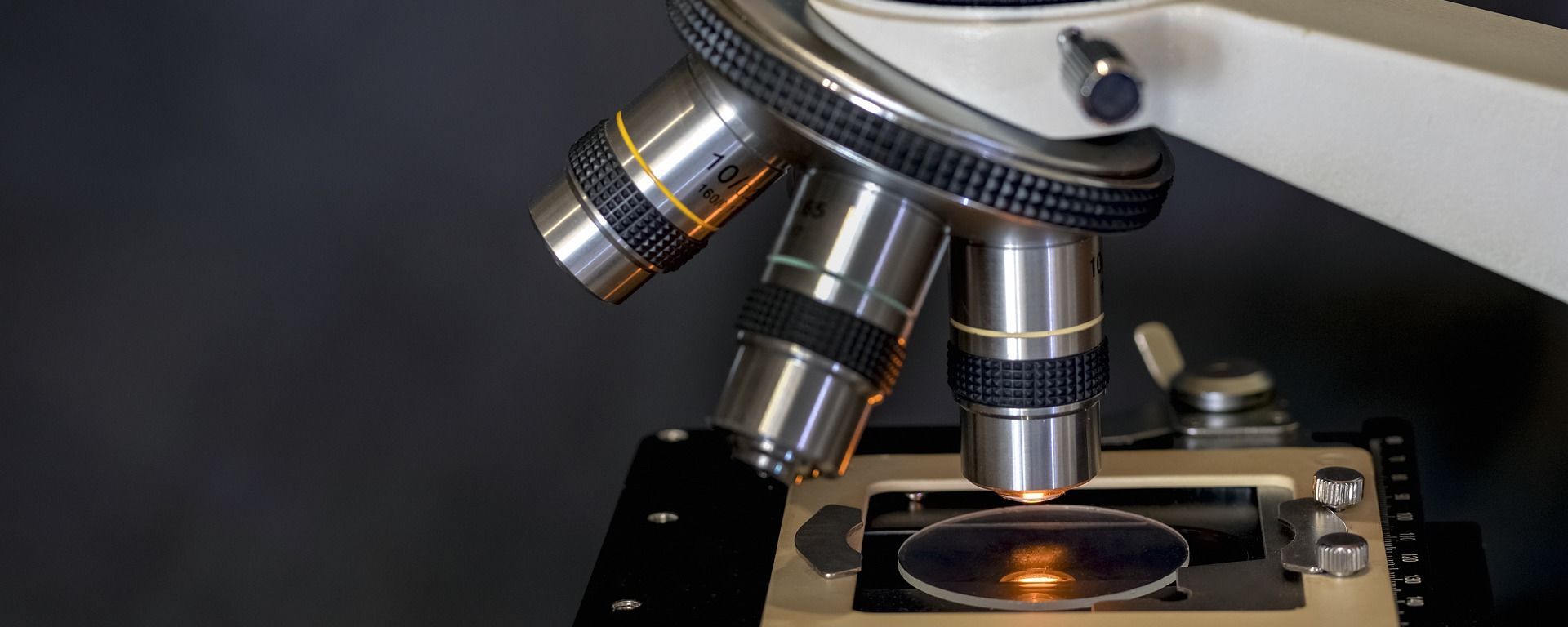https://en.sputniknews.africa/20231224/1064282168.html
Full Interview: Trade Between Ethiopia & Russia Shows 'Interesting Dynamic,' Ethiopian Minister Says
Full Interview: Trade Between Ethiopia & Russia Shows 'Interesting Dynamic,' Ethiopian Minister Says
Sputnik Africa
This week, Addis Ababa was the site of yet another fruitful meeting of the Co-Chairs of the Intergovernmental Russian-Ethiopian Commission on Economic... 24.12.2023, Sputnik Africa
2023-12-24T17:34+0100
2023-12-24T17:34+0100
2023-12-24T17:34+0100
ethiopia
russia-africa cooperation
russia
vladimir putin
addis ababa
brics
sputnik africa
east africa
artificial intelligence (ai)
trade
https://cdn1.img.sputniknews.africa/img/07e7/0c/18/1064283733_0:23:3072:1751_1920x0_80_0_0_36102a5f80be791bb484c107c3ddd1ad.jpg
Sputnik Africa has talked to the Ethiopian side's co-chair, Ethiopia's Minister of Innovation and Technology Dr Belete Molla, after the event to discuss the current relations between Moscow and Addis Ababa, as well as a number of other important issues.A meeting of the Co-Chairs of the Intergovernmental Russian-Ethiopian Commission on Economic, Scientific, Technical and Trade Cooperation has just been held. Could you please share your impressions of it? How would you estimate its results?The meeting was co-chaired by myself as an Ethiopian Minister of Innovation and Technology and from the Russian side by the Head of Federal Agency on Mineral Resources of Russia, His Excellency Eugeny Petrov. The meeting was emphasizing on practical cooperation focusing on tangible and practical works to unlock opportunities in trade, investment, and joint projects. Agreements were reached on various aspects that could provide a foundation for future collaboration.The meeting also served as a midterm review of the Commission's work, suggesting a focus on identifying areas for improvement and ensuring progress towards set goals. In general, the meeting was a positive step forward in strengthening economic and technical cooperation between Russia and EthiopiaThe bilateral trade was one of the topics of the meeting. How would you estimate the dynamics of bilateral trade between Ethiopia and Russia in recent years?The bilateral trade between Ethiopia and Russia has shown an interesting dynamic in recent years, marked by various growths. The recent emphasis on practical cooperation could lead to new initiatives that boost bilateral trade, such as investments in infrastructure or joint ventures in manufacturing.Even though we are optimistic for future growth, in the meeting we have also discussed the low level of current trade between the two countries, despite their long-standing relationship, as well as the trade imbalances.In January, Ethiopia will become a member of the BRICS group. What does it mean for your country and what kind of possibilities does it open for Ethiopia?Ethiopia's upcoming membership in the BRICS group, effective in January 2024, marks a significant moment for the country, opening up exciting possibilities across various domains. We expect increased trade and investment; Ethiopia's inclusion could attract investments in infrastructure, manufacturing, and agriculture, boosting its economic growth.Ethiopia's upcoming membership in BRICS is a significant opportunity for the country. We expect it to boost Ethiopia's international profile, attract foreign investment, and facilitate access to new markets. We also expect further collaborations with other BRICS members in areas like infrastructure development, technology transfer, and skills trainingOverall, Ethiopia's BRICS membership holds immense potential for the country's economic development, technological advancement, and global influence. By capitalizing on the opportunities and navigating the challenges effectively, Ethiopia can unlock a new chapter of progress and prosperity.The Russian company LADA Export has recently signed an agreement with Ethio Engineering Group to manufacture LADA cars in Ethiopia. What makes Russian vehicles appealing to Ethiopia? What are the long-term prospects of cooperating with Russia in the transport sector?We see the LADA manufacturing agreement as a positive step towards increased cooperation in the transport sector. We hope for future partnerships in areas like automotive parts production and technology sharing.Several factors could make Russian vehicles like LADA cars appealing to the Ethiopian market. As you may know, LADA has a historical presence in Ethiopia, dating back to the Soviet era. This existing brand familiarity could provide an advantage over less established brands.LADA cars often have a reputation for robustness and reliability, well-suited for Ethiopia's varied terrain and challenging road conditions. Their simple design can also translate to easier maintenance and repairs. Local production of LADA cars could lead to better availability and affordability of spare parts, enhancing after-sales service and consumer confidence.In 2021, Russia and Ethiopia signed two memoranda of understanding: on nuclear education and training in Ethiopia and on building a positive public opinion about nuclear power. Can you tell us about the current status of cooperating on peaceful nuclear energy?In 2021, Russia and Ethiopia signed two Memoranda of Understanding (MoUs) to collaborate on peaceful nuclear energy applications. This MoU aimed to establish a nuclear education and training program in Ethiopia, potentially involving setting up a nuclear science and technology center. The MoU also focused on promoting public understanding and acceptance of nuclear energy in Ethiopia, addressing concerns and misinformation.The MoUs laid the groundwork for further cooperation. In July 2023, Russia and Ethiopia signed a roadmap for developing cooperation in peaceful nuclear energy. This roadmap outlines specific steps for exploring the feasibility of building a nuclear power plant in Ethiopia, as well as establishing a nuclear science and technology center. Both countries have held technical tours and seminars to exchange knowledge and expertise in nuclear technology. A specialized working groups have been established to discuss the technical aspects of implementing the MoUs.2023 was the year of artificial intelligence (AI), and it has entered many spheres of activity around the world. Vladimir Putin has compared it to civil nuclear technology turned into nuclear weapons. Do you think AI is good or evil?The characterization of 2023 as the year of AI indicates considerable developments and widespread usage of AI technologies in a variety of industries. The influence of AI is significant, touching on fields such as healthcare, banking, professional services, entertainment, and others, improving efficiencies and capacities.Having said that, the question of AI being inherently good or evil is complex. AI, like any other technology, is formed by the intentions and actions of those who create, develop, and deploy it. Its moral and ethical consequences are mostly determined by human actions, governance systems, and regulatory frameworks. To avoid biases and unforeseen consequences, responsible AI development should include examining ethical issues, maintaining transparency, and engaging multiple perspectives. Instead of debating on the overly simplistic question of whether AI is good or evil, we should consider how we as a society choose to use and control this tremendous technology. To maximize AI's potential for good while avoiding its threats, the emphasis should be on responsible development, ethical usage, and effective governance.How do you think AI can change the economy of your country and Africa in general?The potential impact of AI on the economies of developing economies, such as those in Africa, including our nation Ethiopia, can be both transformative and multifaceted. First and foremost, AI can be a game-changer in agriculture, which is a cornerstone of many African economies. By leveraging AI in precision farming, farmers can make informed decisions that lead to increased crop yields and sustainable practices.Another critical area is financial inclusion. Many people in Africa don't have access to traditional banking services. AI-powered fintech solutions can provide personalized financial services, like microloans and insurance, directly to individuals, thereby promoting economic empowerment and growth.Education is another sector where AI can make a profound impact. Through personalized learning and AI-driven educational tools, we can address the challenges of teacher shortages and educational resource limitations, providing quality education tailored to individual needs.Importantly, while AI can potentially displace some jobs, it also creates new opportunities in emerging tech sectors. This necessitates a focus on skills development and education in AI and related fields.So, to harness AI full benefits, it's crucial to address challenges like skill development, infrastructure, ethical AI development, funding, international collaboration, and the formulation of effective economic policies that support and regulate AI's growth.
https://en.sputniknews.africa/20231218/agreement-signed-russian-cars-to-be-produced-in-ethiopia-1064186310.html
https://en.sputniknews.africa/20230420/ugandan-scientist-makes-low-cost-ai-supported-cancer-detection-microscope-1058727309.html
ethiopia
russia
addis ababa
east africa
Sputnik Africa
feedback@sputniknews.com
+74956456601
MIA „Rossiya Segodnya“
2023
Sputnik Africa
feedback@sputniknews.com
+74956456601
MIA „Rossiya Segodnya“
News
en_EN
Sputnik Africa
feedback@sputniknews.com
+74956456601
MIA „Rossiya Segodnya“
Sputnik Africa
feedback@sputniknews.com
+74956456601
MIA „Rossiya Segodnya“
ethiopia, russia-africa cooperation, russia, vladimir putin, addis ababa, brics, sputnik africa, east africa, artificial intelligence (ai), trade, nuclear energy, education, cars, cooperation
ethiopia, russia-africa cooperation, russia, vladimir putin, addis ababa, brics, sputnik africa, east africa, artificial intelligence (ai), trade, nuclear energy, education, cars, cooperation
Full Interview: Trade Between Ethiopia & Russia Shows 'Interesting Dynamic,' Ethiopian Minister Says
This week, Addis Ababa was the site of yet another fruitful meeting of the Co-Chairs of the Intergovernmental Russian-Ethiopian Commission on Economic, Scientific, Technical and Trade Cooperation.
Sputnik Africa has talked to the Ethiopian side's co-chair, Ethiopia's Minister of Innovation and Technology Dr Belete Molla, after the event to discuss the current relations between Moscow and Addis Ababa, as well as a number of other important issues.
A meeting of the Co-Chairs of the Intergovernmental Russian-Ethiopian Commission on Economic, Scientific, Technical and Trade Cooperation has just been held. Could you please share your impressions of it? How would you estimate its results?
The meeting was co-chaired by myself as an Ethiopian Minister of Innovation and Technology and from the Russian side by the Head of Federal Agency on
Mineral Resources of Russia, His Excellency Eugeny Petrov. The meeting was emphasizing on practical cooperation focusing on tangible and practical works to unlock opportunities in trade, investment, and joint projects. Agreements were reached on various aspects that could provide a foundation for future collaboration.
The meeting also served as a midterm review of the Commission's work, suggesting a focus on identifying areas for improvement and ensuring progress towards set goals. In general, the meeting was a positive step forward in strengthening economic and technical cooperation between Russia and Ethiopia
The bilateral trade was one of the topics of the meeting. How would you estimate the dynamics of bilateral trade between Ethiopia and Russia in recent years?
The bilateral trade between Ethiopia and Russia has shown an interesting dynamic in recent years, marked by various growths. The recent emphasis on practical cooperation could lead to new initiatives that boost bilateral trade, such as investments in
infrastructure or joint ventures in manufacturing.
Even though we are optimistic for future growth, in the meeting we have also discussed the low level of current trade between the two countries, despite their long-standing relationship, as well as the trade imbalances.
In January, Ethiopia will become a member of the BRICS group. What does it mean for your country and what kind of possibilities does it open for Ethiopia?
Ethiopia's upcoming membership in the BRICS group, effective in January 2024, marks a significant moment for the country, opening up exciting possibilities across various domains. We expect increased trade and investment; Ethiopia's
inclusion could attract investments in infrastructure, manufacturing, and agriculture, boosting its economic growth.
Ethiopia's upcoming membership in BRICS is a significant opportunity for the country. We expect it to boost Ethiopia's international profile, attract foreign investment, and facilitate access to new markets. We also expect further collaborations with other BRICS members in areas like
infrastructure development, technology transfer, and skills training
BRICS members are at the forefront of technological advancements in areas like AI, renewable energy, and digital infrastructure. Ethiopia can collaborate on research and development projects, gaining access to cutting-edge technologies. In addition, it is worth to note that BRICS cooperation often involves knowledge transfer and skills development programs. Ethiopia can leverage these opportunities to upskill its workforce and prepare for the future of work.
Overall, Ethiopia's BRICS membership holds immense potential for the country's economic development, technological advancement, and global influence. By capitalizing on the opportunities and navigating the challenges effectively, Ethiopia can unlock a new chapter of progress and prosperity.
The Russian company LADA Export has recently signed an agreement with Ethio Engineering Group to manufacture LADA cars in Ethiopia. What makes Russian vehicles appealing to Ethiopia? What are the long-term prospects of cooperating with Russia in the transport sector?
We see the LADA manufacturing agreement as a positive step towards increased cooperation in the transport sector. We hope for future partnerships in areas like automotive parts production and technology sharing.
Several factors could make Russian vehicles like LADA cars appealing to the Ethiopian market. As you may know, LADA has a historical presence in Ethiopia, dating back to the Soviet era. This existing brand familiarity could provide an advantage over less established brands.
LADA cars often have a reputation for robustness and reliability, well-suited for Ethiopia's varied terrain and challenging road conditions. Their simple design can also translate to easier maintenance and repairs. Local production of LADA cars could lead to better availability and affordability of spare parts, enhancing after-sales service and consumer confidence.
In 2021, Russia and Ethiopia signed two memoranda of understanding: on nuclear education and training in Ethiopia and on building a positive public opinion about nuclear power. Can you tell us about the current status of cooperating on peaceful nuclear energy?
In 2021, Russia and Ethiopia signed two Memoranda of Understanding (MoUs) to collaborate on peaceful nuclear energy applications. This MoU aimed to establish a nuclear
education and training program in Ethiopia, potentially involving setting up a nuclear science and technology center. The MoU also focused on promoting public understanding and acceptance of nuclear energy in Ethiopia, addressing concerns and misinformation.
The MoUs laid the groundwork for further cooperation. In July 2023, Russia and Ethiopia signed a roadmap for developing cooperation in peaceful nuclear energy. This roadmap outlines specific steps for exploring the feasibility of building a nuclear power plant in Ethiopia, as well as establishing a nuclear science and technology center. Both countries have held technical tours and seminars to exchange knowledge and expertise in nuclear technology. A specialized working groups have been established to discuss the technical aspects of implementing the MoUs.
2023 was the year of artificial intelligence (AI), and it has entered many spheres of activity around the world. Vladimir Putin has compared it to civil nuclear technology turned into nuclear weapons. Do you think AI is good or evil? The characterization of 2023 as the year of AI indicates considerable developments and widespread usage of AI technologies in a variety of industries. The influence of AI is significant, touching on fields such as healthcare, banking, professional services, entertainment, and others, improving efficiencies and capacities.
President Vladimir Putin's comparison of AI to nuclear technology is a fascinating analogy. AI, like nuclear technology, has both helpful and hazardous applications. The contrast highlights AI's dual nature: it can promote innovation and development for humanity while also posing substantial risks if exploited or developed without proper ethical considerations, rules, and safeguards.
Having said that, the question of AI being inherently good or evil is complex. AI, like any other technology, is formed by the intentions and actions of those who create, develop, and deploy it. Its moral and ethical consequences are mostly determined by human actions, governance systems, and regulatory frameworks. To avoid biases and unforeseen consequences, responsible AI development should include examining ethical issues, maintaining transparency, and engaging multiple perspectives. Instead of debating on the overly simplistic question of whether AI is good or evil, we should consider how we as a society choose to use and control this tremendous technology. To maximize AI's potential for good while avoiding its threats, the emphasis should be on responsible development, ethical usage, and effective governance.
How do you think AI can change the economy of your country and Africa in general?
The potential impact of AI on the economies of developing economies, such as those in Africa, including our nation Ethiopia, can be both transformative and multifaceted. First and foremost, AI can be a game-changer in agriculture, which is a cornerstone of many African economies. By leveraging AI in precision farming, farmers can make informed decisions that lead to increased crop yields and sustainable practices.
In the realm of healthcare, AI's impact cannot be overstated. It has the potential to revolutionize medical care in under-resourced areas, offering tools for diagnosis, patient management, and even remote consultations. This can significantly bridge the gap in healthcare accessibility.
Another critical area is
financial inclusion. Many people in Africa don't have access to traditional banking services. AI-powered fintech solutions can provide personalized financial services, like microloans and insurance, directly to individuals, thereby promoting economic empowerment and growth.
Education is another sector where AI can make a profound impact. Through personalized learning and AI-driven educational tools, we can address the challenges of teacher shortages and educational resource limitations, providing
quality education tailored to individual needs.
Importantly, while AI can potentially displace some jobs, it also creates new opportunities in emerging tech sectors. This necessitates a focus on skills development and education in AI and related fields.
So, to harness AI full benefits, it's crucial to address challenges like skill development, infrastructure, ethical AI development, funding, international collaboration, and the formulation of effective economic policies that support and regulate AI's growth.



